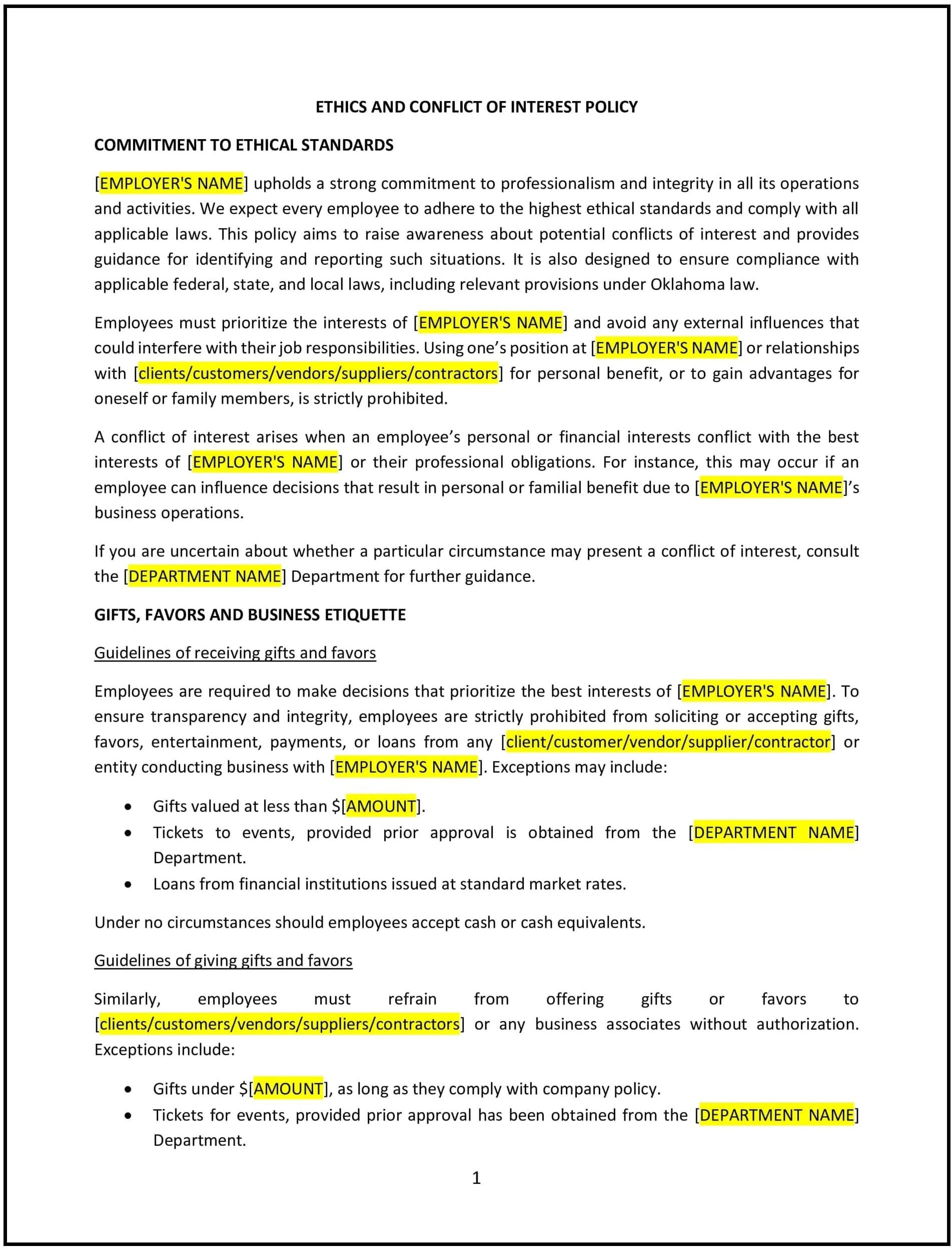Ethics and conflict of interest policy (Oklahoma): Free template
Got contracts to review? While you're here for policies, let Cobrief make contract review effortless—start your free review now.

Customize this template for free
Ethics and conflict of interest policy (Oklahoma)
This ethics and conflict of interest policy is designed to help Oklahoma businesses maintain integrity and transparency in their operations. It outlines guidelines for identifying, disclosing, and managing conflicts of interest, as well as promoting ethical behavior among employees.
By adopting this policy, businesses can strengthen trust, enhance decision-making, and foster a culture of accountability and fairness.
How to use this ethics and conflict of interest policy (Oklahoma)
- Define conflicts of interest: Clearly explain what constitutes a conflict of interest, such as personal relationships, financial interests, or external activities that may influence professional judgment.
- Establish disclosure procedures: Provide steps for employees to disclose potential conflicts of interest, including whom to report to and the required documentation.
- Outline management strategies: Describe how conflicts of interest will be addressed, such as recusal from decision-making or restructuring responsibilities.
- Promote ethical behavior: Include guidelines for ethical decision-making, such as avoiding gifts, bribes, or other improper influences.
- Train employees and managers: Educate staff on recognizing and managing conflicts of interest and adhering to ethical standards.
- Review and update: Assess the policy annually to ensure it aligns with evolving workplace dynamics and legal standards.
Benefits of using this ethics and conflict of interest policy (Oklahoma)
This policy offers several advantages for Oklahoma businesses:
- Strengthens trust: Demonstrates a commitment to transparency and fairness, building trust with employees, clients, and stakeholders.
- Enhances decision-making: Reduces the risk of biased or compromised decisions by addressing conflicts of interest proactively.
- Promotes accountability: Encourages employees to act with integrity and take responsibility for their actions.
- Mitigates risks: Reduces the likelihood of legal disputes, reputational damage, or financial losses due to unethical behavior.
- Fosters a positive culture: Reinforces a workplace environment where ethical behavior is valued and rewarded.
Tips for using this ethics and conflict of interest policy (Oklahoma)
- Communicate clearly: Ensure all employees understand the policy and their responsibilities in identifying and disclosing conflicts of interest.
- Provide training: Regularly train employees and managers on ethical standards and conflict of interest management.
- Encourage transparency: Foster a culture where employees feel comfortable disclosing potential conflicts without fear of retaliation.
- Monitor compliance: Regularly review disclosures and address conflicts of interest promptly and fairly.
- Update regularly: Assess the policy annually to ensure it remains effective and aligned with current legal and ethical standards.